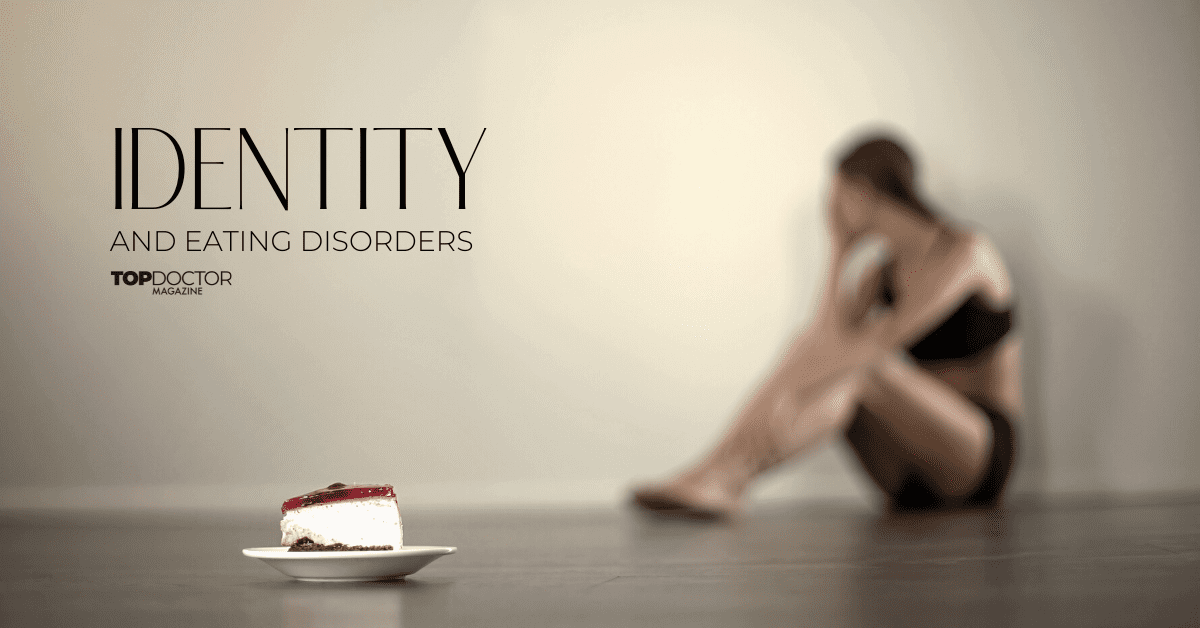Eating disorders are a truly debilitating and deadly set of mental health issues. They have one of the highest fatality rates out of all mental health conditions, with someone dying approximately every hour from an eating disorder complication in the U.S.
The prominence of eating disorders is on the rise. A literature review published in the American Journal of Clinical Nutrition of 121 studies conducted between 2000-2018 found that the prevalence of eating disorders doubled during the period 2013-2018 when compared to 2000-2006.
Outside of the extensive socioeconomic detriments of eating disorders, these conditions can severely affect one’s sense of identity. Identity is a complex psychological concept that refers to the facets of one’s answer to the questions: who am I or who do I want to be?
We must unpack identity and its changes under the influence of eating disorders to discern it accurately and productively.
What Is an Eating Disorder?
According to the American Psychiatric Association (APA), eating disorders are a group of conditions typified by disrupting eating behaviors and patterns due to psychological distress.
The causes and symptoms of eating disorders can be comprehensively examined and understood through the biopsychosocial (BPS) model, the brainchild of American psychiatrist George Engel. Engel proposed that we should view medical conditions through three distinct lenses: biological, psychological and sociological.
The example below illustrates the benefit of using a multi-pronged approach when considering the causes and symptoms of a disorder:
A teenage boy has a genetic predisposition to an eating disorder (biological), suffers from low self-esteem (psychological) and grows up in an environment imbued with unrealistic body image expectations (sociological). As a result, he develops an eating disorder. Due to the eating disorder, the boy experiences unhealthy weight fluctuations (biological), becomes pathologically self-conscious regarding his appearance (psychological) and neglects relationships due to his obsession with his physique (sociological).
Are Eating Disorders Diseases?
In a definitional sense, a disease is an abnormality causing the interruption of the normal functioning of a biological organism.
Even though some medical insurance companies do not provide coverage for eating disorders since they do not consider them actual diseases, it is clear that eating disorders can fit the definition.
What Are the Criteria for Eating Disorders?
The APA’s Diagnostic and Statistical Manual of Mental Disorders (DSM) is considered the leading authority on the classification and definition of mental illnesses. The DSM’s latest iteration, the DSM-5, recognizes the following eating disorders with their respective diagnostic criteria:
- Anorexia nervosa: The reduction of sustenance to the point of reaching a dangerously low body weight, an irrational fear of gaining weight and body dysmorphia.
- Bulimia nervosa: Consuming a significant amount of food in a short period (a couple of hours) and then “purging” by throwing up, using laxatives or exercising excessively.
- Binge eating disorder: Eating an abnormally large amount of food quickly and feeling immense guilt after consuming it.
- Avoidant/restrictive food intake disorder (ARFID): Avoiding eating to the extent of becoming nutritionally deficient and underweight. Those afflicted with ARFID do not behave this way due to their body image issues.
- Other specified feeding and eating disorders (OSFED): Those afflicted with OSFED can display a combination of the symptoms of other eating disorders but do not meet the full diagnostic criteria for any single one of them.
Eating Disorder Triggers
Many mental health issues are characterized by triggers describing a stimulus that leads to an adverse emotional response. Triggers are diverse and can be external (a place, sound or smell) or internal (experiencing a particular feeling).
It is common for those with eating disorders to have triggers. However, as with other mental health disorders, triggers are often highly unique and specific to a person’s life experience.
Common eating disorder triggers include:
- Negative emotions such as anger, disappointment, fear, sadness, betrayal, rejection and frustration;
- Interacting with abusers;
- Interacting with individuals who form part of a toxic social dynamic;
- Reminders of traumatic events such as sounds, places, smells and other determinants of context;
- Feeling unsafe or being in an uncomfortable and unfamiliar situation.
Eating Disorder Treatments
While eating disorders refer to a varied group of disorders, some common themes are found in their treatments.
Psychological-based therapies for eating disorders are both effective and popular. The most common psychological treatment options include cognitive behavioral therapy (CBT), family-based therapy and group therapy. If these interventions are unsuccessful, more intensive forms of psychological therapy, such as admission into a specialty clinic or hospital, are available.
Other treatment approaches include education around diet and nutrition supplemented by planning around one’s eating behaviors.
Lastly, pharmaceutical therapies are available for eating disorders. They often include medications such as antidepressants and gastroenterological drugs.
What Is Identity As a Psychological Concept?
In psychology, identity is a complex, multi-faceted term. Simply put, identity is at the heart of the answer to the question: who are you? It entails aspects of one’s sense of self, defined as how one perceives themselves in terms of attributes.
Many individuals firmly base their identity on their values, which are often the cornerstone of one’s decision-making process. Consequently, identity can be strongly tied to an individual’s cultural and social upbringing and environment since these factors usually influence a person’s value system.
Some psychologists argue that having multiple identities is beneficial and, in some ways, necessary for everyday life. Humans fulfill multiple roles throughout their lives. For example, an individual can be a daughter, sister, mother, wife, teacher, student and professional at various points in life and even satisfy some of these roles concurrently. Each of these roles entails different privileges and responsibilities, requiring different behaviors and approaches.
This is not to say that one should be chameleon-esque. However, a well-adapted and well-socialized person should be able to balance their innate personality with the demands of the environment and alter this balance as the need arises.
Problems can crop up when an individual excessively identifies with a particular role or sub-personality to the detriment of others. This “over-identification” with a specific role or sub-personality is how eating disorders can negatively impact a person’s identity and sense of self.
The identity that people assign to a given individual can notably impact their overall behavior and, indeed, their own self-assessment.
How Do Eating Disorders Affect Identity?
Eating disorders can affect one’s sense of self and the identity assigned by society. A study of women diagnosed with anorexia nervosa found that the women felt stigmatized by their diagnosis and, to compensate, sought out pro-eating disorder communities online. Further studies have found that online pro-eating disorder communities offer those afflicted with these disorders a place to feel accepted and validated in their dysfunctional behavior.
Such online environments can harm those with eating disorders, as they normalize and create a sense of pride in damaging behavior patterns. Surrounding oneself with an open-minded, understanding, caring and honest support system is a powerful way to ensure that such an outcome does not occur.
Those who have battled eating disorders for long periods can also struggle to dissociate themselves from their disorder. Even once someone has entered into prolonged eating disorder recovery, they might have difficulty moving past their illness, which carries the danger of relapse.
Individuals should recognize that while an eating disorder was part of their life for a time, it does not need to be a defining factor that prevents them from growing and healing. Attending effective and professional psychological therapy can help ease the transition from intensive therapy to normalcy, thereby avoiding the downfalls of “over-identification” with one’s eating disorder.
Defeating an Eating Disorder and Regaining One’s Identity
Recovery from an eating disorder is possible with the right tools and a supportive environment. Once it has been achieved, take care not to let yourself be hindered by the labels and stigma associated with eating disorders. Learning to healthily transition from intensive eating disorder interventions to living a well-adjusted life within the framework of an effective support system can be the foundation of a well-balanced and fulfilled life.
If you or someone you know may be struggling with an eating disorder, contact the National Eating Disorder Association for support here. (QR code for print)





0 Comments